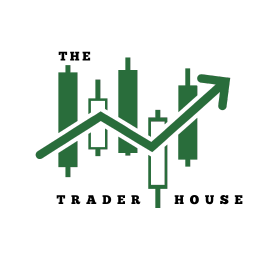
US-China Tensions Reshape Markets & Trump Aims for Gaza
In recent weeks, the world has been watching closely as US-China trade tensions escalate. These events have a ripple effect across financial markets, influencing how investors are making decisions. If you’re a beginner trader trying to navigate this landscape, understanding these influences can help you think strategically about your investments.
As trade battles heat up, you may be wondering how this directly affects the stock market. For many companies that heavily rely on exports to China, increased tariffs could spell trouble. Tariffs are taxes that countries add to goods imported from another country. When these taxes go up, companies might see their costs rise, which could lead to lower profits. This, in turn, can affect stock prices. If companies aren’t earning as much, investors might think twice before buying their stocks.
The uncertainty surrounding trade policies is also causing many investors to hold back. When it’s hard to predict how companies will perform, some traders prefer to wait rather than jump in. This reluctance can lead to market instability, meaning stock prices might fluctuate more frequently. For new traders, this is an important lesson: keeping an eye on current events and understanding their potential impacts can help you make better trading decisions.
Apart from US-China relations, geopolitical issues in Gaza are adding another layer of complexity to the investment landscape. Recent developments in this region have the potential to influence oil prices and trade routes. For instance, if tensions escalate and oil production is affected, we could see oil prices rise. Since many companies depend on oil for their operations, increased costs could trickle down to consumers and further impact the stock market.
Now, you might be asking, “How can I keep up with all this information?” Staying informed through reliable news sources is key. Websites like Bloomberg offer updated analyses and insights that can help you understand what’s happening in the financial world. For example, you can find information on the ongoing US-China trade tensions and the geopolitical situation in Gaza by visiting their site here.
Analyzing these events will give you an edge in thinking like a trader. Begin by tracking stocks within export-dependent companies. Look for news on tariffs and any statements from company leaders. This can offer clues about how the companies you’re watching might perform and whether you should buy or sell their stocks.
Remember, every trade you make should have a clear plan behind it. After assessing the current events, consider setting limits on your trades. This means deciding in advance on the profit you wish to take or the loss you’re willing to accept. This disciplined approach is helpful, especially during uncertain market conditions.
Don’t forget also to consider the longer-term implications of geopolitical issues beyond immediate industry impacts. Markets can take time to react to global events, so keeping a broader perspective while still being aware of recent news is important.
Visual aids can be quite helpful, too. Charts and infographics that show how markets react to events can clarify your understanding. You might want to include a visual that compares market reactions during other significant trade tensions in history. This helps you see patterns that might emerge and understand the current situation better.
For new traders, building a habit of regular research and analysis is crucial. Try to combine this with your own trading practice. As you gain experience, take notes on how your decisions align with what’s happening in the news. Over time, you’ll find connections between market moves and global trends, helping you make more informed trading decisions.
If you are feeling unsure or would appreciate a more structured approach to learning, consider joining a trading course. These programs can offer expert insights and help you shortcut your learning curve as you work towards achieving quick results in your trading journey. You can check for available courses to get started here.
As you explore the stock market, remember to stay engaged with the wider community. Following financial news not only keeps you informed but also connects you with other traders who share your interests. Don’t hesitate to subscribe to our email list for regular updates on trading strategies and market news. You can also engage with us on social media:
– FaceBook
– Instagram
– TikTok
– PINTEREST
– Our WEBSITE
– YouTube
In this fast-paced trading environment, your ability to adapt based on news and market behavior will be your greatest asset. Stay informed, stay engaged, and keep practicing your trading skills!
Source: Bloomberg








